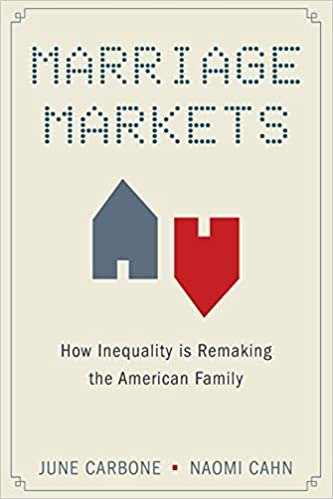
A fortuitous moment to meditate on the value of critical legal studies and critical race theory.
https://twitter.com/BeschlossDC/status/1402973162632093700
The majority in Loving decided the case not simply on the basis of equal protection, which it could have, but on a "right to marry" that could be infringed upon by States if they could prove a compelling interest. This was not a fatality for each States' right to discriminate.
The Court maintained that "marriage is a social relation subject to the State's police power." The sleight of hand is interesting here: marriage is not merely social, but political, hence the State's power to police it, define it, and enforce its boundaries.
In other words, the court made clear that marriage was not about "love," but a contract concerning politics and economics. Outside of a critical framework, however, we would be made to believe that Loving legalized interracial love.
By representing marriage as a matter of social relation, individual will, and personal choice, the Court "ushered in an era of colorblind segregation," further developing a flexible but narrow interpretation of equal protection.
The definition needed to be flexible not to allow for the expansion of civil rights, but to allow the States to make compelling arguments in the future if they did so appear to violate equal protection in other cases. The Court gave space to justify discrimination in the future.
At the same time, it reinstated the abstract notion of equal protection without addressing the myriad ways equal protection is impossible without equal opportunity. (this goes without mentioning restrictions on polygamy... for which I see no legitimate state interest to restrict)
Marriage markets are defined by other political factors. Unequal access to that market yields the kinds of disparities we see in marriage among black people and poor people compound already existing income and wealth inequity. 





Rather than being a victory for racial equality, the Court's application of a seemingly universal and certainly abstract understanding of equality, liberty, and rights contributed to a string of jurisprudence that helped cement inequality as a *matter of liberty.*
This is damning enough from a critical legal studies perspective, but critical race theory has something to add.
The Court maintains that race--because it does not treat it otherwise--is fixed category relating to geno/phenotype rather than a political condition defined by economic access, social honor, and historical inheritance.
In other words, Loving reinscribes race as an ontological fact that cannot be redressed rather than a manifestation of political violence that necessarily needs redress under any real rubric committed to "equal protection." But of course it does: 





Two of the most noted juridical legacies of Loving are Bowers v Hardwick and Lawrence v Texas. These decisions narrowed rather than expanded liberty, saying that your private sexual life is not the state's business, but not freeing sexuality from the fetters of "the private."
Lawrence v Texas specifically avoids the likely possibility that the sex act involving the two plaintiffs (one black male, one white male) was an economic exchange. It relies on an assumed romantic relationship between the two men, thereby holding the line on sex work as criminal
In both Loving and Lawrence, to quote Kathleen Franke, "decriminalization does not necessarily mobilize any particular ethical projects... or any ethics at all" but "merely signals a public tolerance of [private] behavior."
Thus, we don't quite have the "freedom" to marry whomever we want, but rather the power (and for some of us a lot more power than others) to enter into a contract that comes with additional powers, privileges, and rights.
Other kinds of family formation remain subterranean and result in penalties related to taxation, the redistribution of wealth, custody of children, access to social safety nets, and so on.
Thus, a case (Loving v Virginia) that appears to be about racial equality is not fundamentally a case about race or equality at all. (The use of both words are misnomers at best and any effect they have on racialized living is incidental.)
We would be taught that Loving was an expansion of freedom, when really it helped solidify a doctrine of colorblindness in a context of ongoing color-based inequality and discrimination. The Court had the power to decide with a more liberating logic and chose not to.
(The VERY short concurring opinion by Justice Stewart is evidence of this possibility. The ability of the majority to ignore Loving in McCleskey v Kemp (1987) is evidence of the ramifications.)
Critical race theory compels us to see these limits--no, that's not right--these machinations of the law, the political interests of its writers, and the ontological commitments of its elaborators. CRT would compel a different, honest, and more expansive jurisprudence.
• • •
Missing some Tweet in this thread? You can try to
force a refresh







